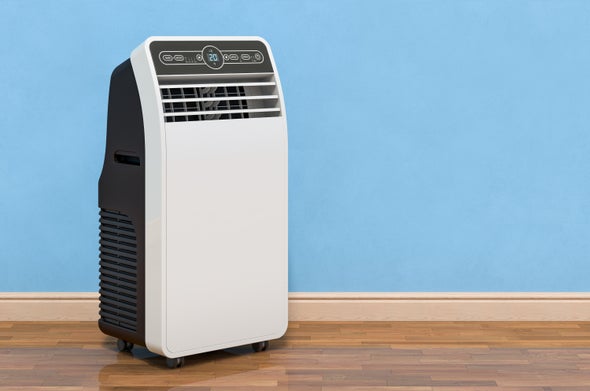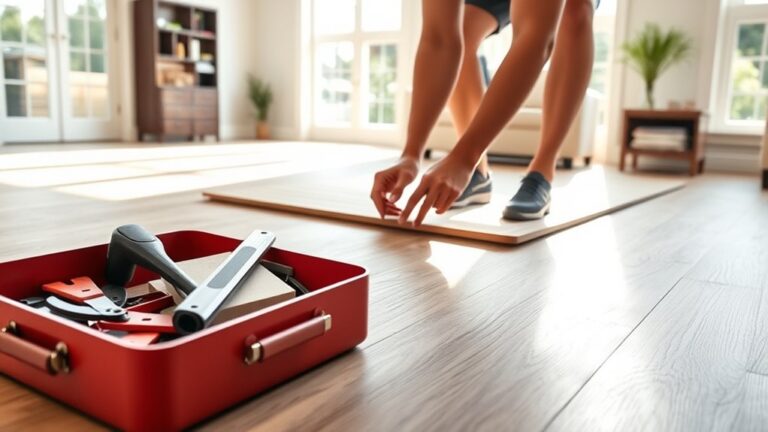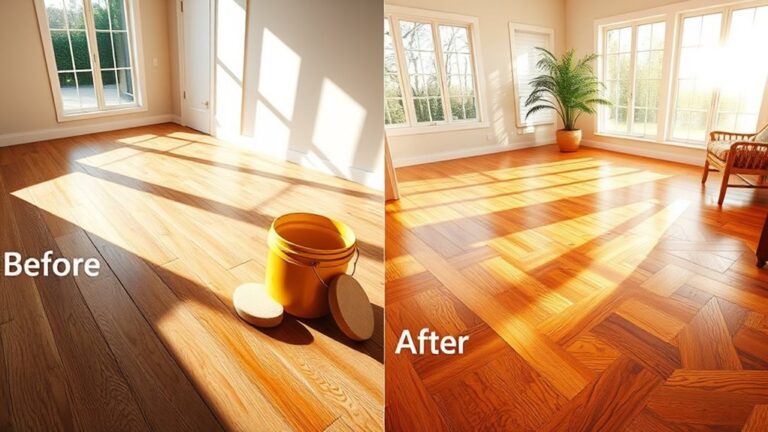A dehumidifier on every floor is not necessary; it depends on the level of humidity in each area. However, it is crucial to have a dehumidifier in areas where there is excessive moisture or high humidity levels to prevent issues like mold growth, musty odors, and damage to furniture and walls.
In areas like basements or rooms with poor ventilation, a dehumidifier can be beneficial in maintaining a healthy and comfortable living environment. By controlling moisture levels, a dehumidifier helps prevent respiratory problems and improves air quality. It is essential to assess the humidity in each area and install a dehumidifier accordingly for optimal results.
Why Should You Use Dehumidifiers?
High humidity levels in your home can lead to various problems and discomfort. Understanding the factors contributing to high humidity levels is important to tackle the issue effectively. Factors such as poor ventilation, wet areas, and even activities like cooking and showering can increase humidity levels. These high humidity levels can cause problems like mold growth, musty odors, and damage to your home’s structure and furnishings.
- Mold and mildew growth: High humidity creates the ideal breeding ground for mold and mildew, which can be harmful to your health.
- Musty odors: Excessive moisture in the air can lead to unpleasant musty smells throughout your home.
- Damage to structure and furnishings: High humidity levels can cause condensation on walls and windows, leading to paint peeling, wood warping, and damage to electronic devices.
- Prevent mold growth: Dehumidifiers help in reducing moisture levels, preventing the growth of mold and mildew.
- Eliminate musty odors: By removing excess moisture, dehumidifiers help in getting rid of unpleasant odors.
- Protect your home: Using dehumidifiers can prevent structural damage and extend the lifespan of your furnishings and electronics.
How Does High Humidity Affect Your Home?
High humidity levels in your home can have a negative impact on your furniture and belongings. Excess moisture in the air can cause wooden furniture to warp or rot, while fabrics may become moldy or develop a musty smell. Electronics and appliances can also be affected by high humidity, leading to decreased performance or even malfunctions.
Moreover, high humidity can result in poor indoor air quality. Excess moisture encourages the growth of mold and mildew, which can trigger respiratory problems and allergies. These pollutants can circulate throughout your home, affecting the health of you and your family. Additionally, they can cause unpleasant odors and stains on walls and ceilings.
To prevent these issues and maintain a comfortable living environment, a dehumidifier can be a valuable addition to your home. By removing excess moisture from the air, it helps protect your furniture, belongings, and indoor air quality on every floor.
The Climatesaving Potential Of Dehumidifiers
Dehumidifiers are not only beneficial for maintaining optimal indoor air quality but also contribute towards reducing energy consumption and environmental impact. By removing excess moisture from the air, dehumidifiers help improve the efficiency of air conditioning systems, allowing them to cool the space more effectively. This translates into energy savings as the AC doesn’t have to work as hard to achieve the desired temperature.
Furthermore, lower energy consumption not only reduces utility bills but also reduces the carbon footprint associated with electricity generation. Reducing energy usage is a key aspect of sustainable living and a step towards a greener planet.
Understanding The Importance Of Dehumidifiers On Every Floor
Variation in humidity levels across different floors is a common occurrence in many homes. This can lead to multiple issues, making it crucial to have a dehumidifier on every floor. Uncontrolled humidity can result in excess moisture accumulation, leading to the growth of mold and mildew. These can cause respiratory problems, allergies, and worsen existing conditions like asthma.
Having a dehumidifier on each floor helps maintain a balanced humidity throughout the home. It prevents high humidity in crawlspaces or basements, reducing the likelihood of water damage, foul odors, and the formation of mold. Additionally, dehumidifiers can improve indoor air quality by removing allergens and pollutants, making the environment safer and healthier for the occupants.
To ensure a comfortable and healthy living space, it is essential to recognize the importance of dehumidifiers on every floor. By keeping humidity levels in check, these devices promote a hygienic and sustainable home environment.
Optimal Humidity Levels For Each Floor
Having a dehumidifier on every floor of your home can greatly contribute to maintaining optimal humidity levels throughout. While the ideal humidity for basement areas is generally around 50%, ground level floors should aim for a slightly lower recommended humidity of 45-50%. This is because basements tend to be more humid due to their location below ground level. On the other hand, upper floors should maintain a similar humidity level as the ground floor to ensure consistency throughout your home. Allowing excessively high humidity can lead to issues like mold growth, musty odors, and damage to wood furniture or flooring. A dehumidifier can help remove excess moisture from the air, promoting a healthier and more comfortable living environment for you and your family.

The Role Of Dehumidifiers In Ensuring Balanced Humidity
The role of dehumidifiers in ensuring balanced humidity is crucial for maintaining a healthy home environment. Humidity levels that are too high can lead to a variety of issues such as mold growth, musty odors, and damage to furniture and other household items. On the other hand, low humidity levels can cause dry skin, respiratory problems, and static electricity. Having a dehumidifier helps in regulating the moisture levels and creating a comfortable living space.
Dehumidifiers work by drawing in the humid air from the room and passing it through a cooling mechanism that condenses the moisture. The condensed moisture is then collected and drained out, leaving behind drier air that is released back into the room. When choosing a dehumidifier, it’s important to consider features such as the size of the room, the dehumidification capacity, and the noise level. These factors ensure that the dehumidifier is suitable for the specific needs of the space.
| Features to Consider: | Benefits: |
|---|---|
| Dehumidification Capacity | Efficient and effective moisture removal |
| Room Size Compatibility | Optimal performance for the specific area |
| Noise Level | Quiet operation for undisturbed use |
| Portability | Easy movement and flexibility |
It is not necessary to have a dehumidifier on every floor of your home. Placement mainly depends on the specific areas where moisture issues are prominent. For example, basements, bathrooms, laundry rooms, and kitchens are common areas where excess moisture is prevalent. Placing a dehumidifier in these spaces can effectively control the humidity levels and prevent potential problems.
Benefits Of Having A Dehumidifier On Every Floor
Having a dehumidifier on every floor of your home offers numerous benefits. One of the key advantages is the prevention and control of mold growth. Excessive humidity can create a breeding ground for mold, which not only compromises the structural integrity of your property but also poses a risk to your health. By reducing the moisture in the air, dehumidifiers inhibit the growth of mold and mildew, helping to maintain a safe and healthy living environment.
Another benefit of having dehumidifiers on every floor is the improved air quality they provide. High humidity levels can lead to musty odors and the accumulation of dust mites and allergens in the air. Dehumidifiers help to extract excess moisture, filtering out these contaminants and improving the overall air quality in your home. This is especially important for individuals with respiratory conditions or allergies, as it can alleviate symptoms and promote better breathing.
Lastly, dehumidifiers contribute to the protection of your furniture and the integrity of your home’s structure. Excessive humidity can cause wood to warp and other materials to deteriorate over time. By maintaining a balanced humidity level, dehumidifiers help to extend the lifespan of your furniture and prevent any damage to the structural components of your property.
Frequently Asked Questions Of Do I Need A Dehumidifier On Every Floor
Do Dehumidifiers Work On Multiple Floors?
Yes, dehumidifiers can work on multiple floors. They help remove excess moisture, preventing mold and mildew growth. Place them strategically on each floor to effectively control humidity levels.
Will One Dehumidifier Do The Whole House?
One dehumidifier cannot cover the entire house. It is recommended to use multiple units in different areas for effective dehumidification.
Can A Dehumidifier Dry A Whole House?
No, a dehumidifier cannot dry a whole house. It is designed to remove excess moisture from a specific area or room. For whole-house dehumidification, you would need a larger system such as a whole-house dehumidifier or an HVAC system with built-in dehumidification capabilities.
Is One Dehumidifier Enough For Basement?
Yes, one dehumidifier is usually enough for a basement. Dehumidifiers effectively remove excess moisture from the air, preventing mold and mildew growth. Make sure to choose a dehumidifier with the appropriate capacity based on your basement’s size and humidity levels.
Conclusion
Considering the varying factors of air circulation, humidity levels, and specific needs of each floor, having a dehumidifier on every floor might not be necessary. Assessing the individual conditions of each space, such as bathrooms, basements, or even attics, will help determine where a dehumidifier is essential.
Remember to regularly monitor humidity levels and address any potential issues to ensure a healthy and comfortable living environment.




